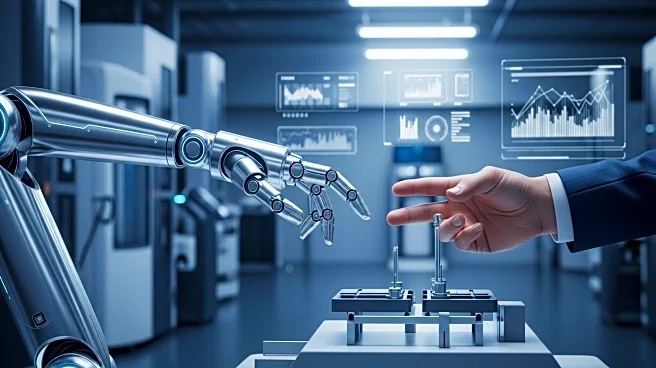What's Happening?
OpenAI is actively reshaping labor markets through its workforce development and AI certification programs. These initiatives aim to bridge AI skill gaps and redefine economic landscapes across various sectors, including healthcare and cloud computing. OpenAI's partnerships with institutions like IIT Madras and the U.S. General Services Administration highlight its commitment to embedding AI literacy in education and government sectors. The company offers certifications through the OpenAI Academy, accessible via ChatGPT, enabling users to upskill efficiently. This approach not only addresses skill shortages but also creates new economic opportunities.
Why It's Important?
OpenAI's efforts to democratize AI access and training are significant as they address the growing demand for AI skills in the workforce. By providing certifications and training, OpenAI is helping to fill critical skill gaps, which is essential for industries looking to leverage AI for productivity and innovation. This initiative could lead to the creation of high-paying jobs and drive economic growth, particularly in sectors like healthcare and finance. However, the transition also poses challenges, such as potential job displacement in roles highly exposed to AI automation.
What's Next?
As OpenAI continues to expand its workforce programs, there may be increased collaboration with educational institutions and businesses to further integrate AI training into curricula and corporate training programs. The rise of AI certifications could lead to a more standardized approach to AI education, influencing hiring practices and career development. Additionally, ethical considerations and regulatory frameworks will need to be addressed to ensure responsible AI use and mitigate potential risks associated with AI-driven job displacement.









